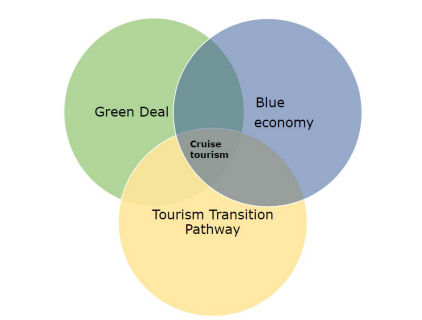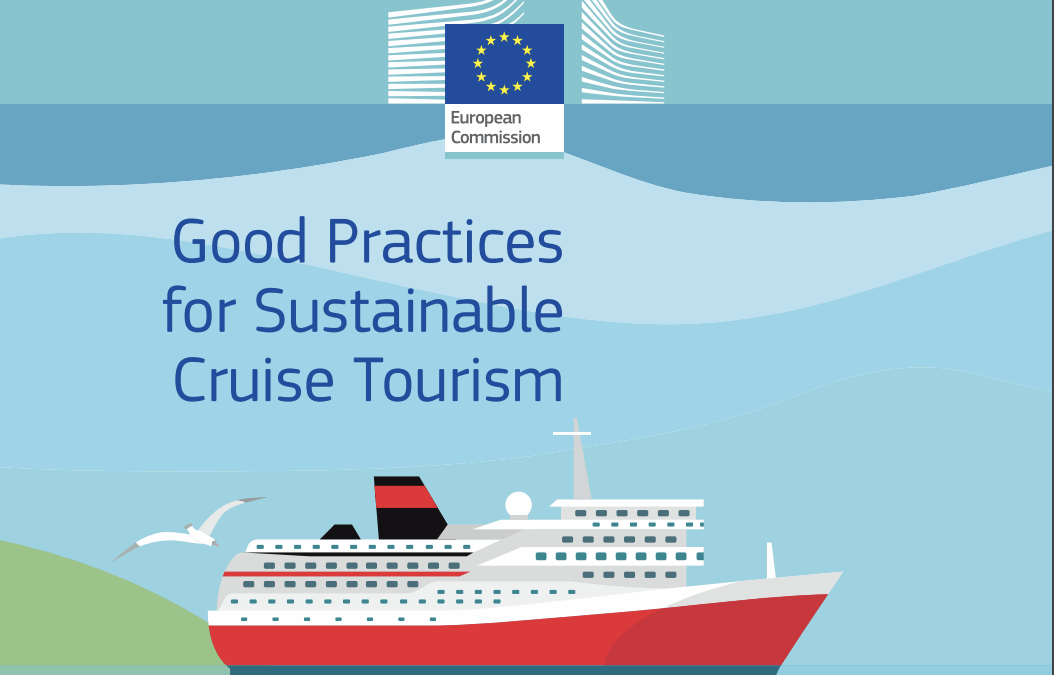In February 2023, the EU’s Blue Economy Observatory published a comprehensive guide titled Good practices for sustainable cruise tourism, offering actionable insights for cruise operators, destinations, and stakeholders.
This publication evaluates proven, innovative strategies that help the cruise sector reduce its environmental footprint and enhance social and economic sustainability.
Sustainable Fundamentals
The report organizes the cruise industry’s sustainability efforts into several impactful categories:
- Eco-Friendly Vessel Operations
- Adopting advanced fuel technologies, such as LNG, biofuels, and hybrid-electric propulsion.
- Implementing shore power (cold-ironing), enabling ships to use local land-based electricity while docked, thus sharply cutting emissions.
- Waste & Water Management
- Installing on-board water treatment systems to comply with strict discharge limits.
- Reducing single-use plastics through reusable tableware and water refills to minimize cruise-generated waste.
- Responsible Destination Practices
- Coordinating passenger schedules to prevent overtourism and spread arrivals throughout the day.
- Partnering with local communities to promote eco-friendly excursions, authentic visitor experiences, and local economic benefits.
- Governance, Planning & Collaboration
- Establishing joint destination–industry governance platforms to align sustainability targets.
- Conducting regular monitoring of emissions, waste, and social impacts, then making data-driven improvements.
- Innovation & Technology Integration
- Using digital monitoring tools to track environmental performance in real time.
- Adopting predictive ship routing to reduce fuel consumption through optimal voyage planning.
Why These Practices Matter
- They help cut pollution, lower greenhouse gas emissions, and preserve marine ecosystems.
- They limit waste and harmful discharges, safeguarding coastal waters.
- Through collaboration with local partners, they support community welfare and enhance cultural experiences.
- They maintain the industry’s social license to operate by respecting the well-being of port destinations.

Recommendations for Cruise Stakeholders
To adopt these measures effectively, the report suggests the following steps:
- Enforce clear regulations on emissions, waste, and energy use at ports.
- Ensure investments in clean technology, including cleaner fuels and shore power port infrastructure.
- Foster partnerships among cruise lines, governments, NGOs, and communities.
- Support innovation by funding R&D and pilot projects.
- Use performance data and indicators to guide sustainability strategies.
In summary
The Good practices for sustainable cruise tourism guide provides a blueprint for transforming maritime travel into a sustainable industry. Whether through energy efficiency, waste reduction, or destination cooperation, these proven actions are key to ensuring cruise tourism is environmentally responsible, socially respectful, and economically viable.

